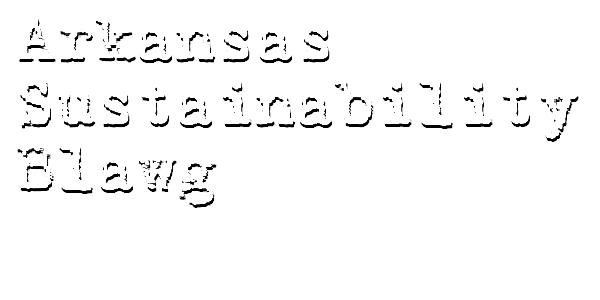One way to begin preparing for the new FTC guidance is to get fluent with the “Seven Sins of Greenwashing.” The Seven Sins of Greenwashing are the product of several years of study by environmental marketing gurus Terrachoice Environmental Marketing. Starting way back in 2007, Terrachoice sent researchers into big-box stores throughout North America. The researchers wrote down every green claim on every product they encountered, along with supporting evidence and other stuff important and obvious to researchers.
Terrachoice found that there was a lot of “greenwashing” going on – that is, “the act of misleading consumers regarding the environmental practices of a company or the environmental benefits of a product or service.”
It also turns out that, once identified, greenwashing practices were easily categorized. Hence, “The Seven Sins of Greenwashing.” So, without further ado, here they are:
Sin of the Hidden Trade-Off. A claim suggesting that a product is “green” based on a narrow set of attributes without attention to other important environmental issues. Paper for example, is not necessarily environmentally-preferable just because it comes from a sustainably-harvested forest. Other important environmental issues in the paper-making process, such as greenhouse gas emissions, or chlorine use in bleaching may be equally important.
Sin of No Proof. An environmental claim that cannot be substantiated by easily accessible supporting information or by a reliable third-party certification. Common examples are facial tissues or toilet tissue products that claim various percentages of post-consumer recycled content without providing evidence.
Sin of Vagueness. A claim that is so poorly defined or broad that its real meaning is likely to be misunderstood by the consumer. “All-natural” is an example. Arsenic, uranium, mercury, and formaldehyde are all naturally occurring, and poisonous. “All natural” isn’t necessarily “green”.
Sin of Worshiping False Labels. A product that, through either words or images, gives the impression of third-party endorsement where no such endorsement exists; fake labels, in other words.
Sin of Irrelevance. An environmental claim that may be truthful but is unimportant or unhelpful for consumers seeking environmentally preferable products. “CFC-free” is a common example, since it is a frequent claim despite the fact that CFCs are banned by law.
Sin of Lesser of Two Evils. A claim that may be true within the product category, but that risks distracting the consumer from the greater environmental impacts of the category as a whole. Organic cigarettes could be an example of this Sin, as might the fuel-efficient sport utility vehicle.
Sin of Fibbing. Environmental claims that are simply false. The most common examples were products falsely claiming to be Energy Star certified or registered.
Obviously, the Sins of Greenwashing represent a marketing, and not a legal, viewpoint. But, as we will see in future posts, they represent a useful tool for navigating through the new FTC guidelines and for analyzing whether a particular claim complies with state law – for example, the Arkansas Deceptive Trade Practices Act.
More information about the greenwashing and the Sins of Greenwashing can be found here:http://sinsofgreenwashing.org/
(Department of Authorized Use: Terrachoice requests that folks seeking to use the greenwashing studies get appropriate approval from Terrachoice. Accordingly, I sought, and received, permission to use and reproduce The Sins of Greenwashing.)


No comments:
Post a Comment
I welcome your comments. By commenting on this blog, you accept the blog's terms of use. You must use your first and last name when posting, and you must stay on topic.